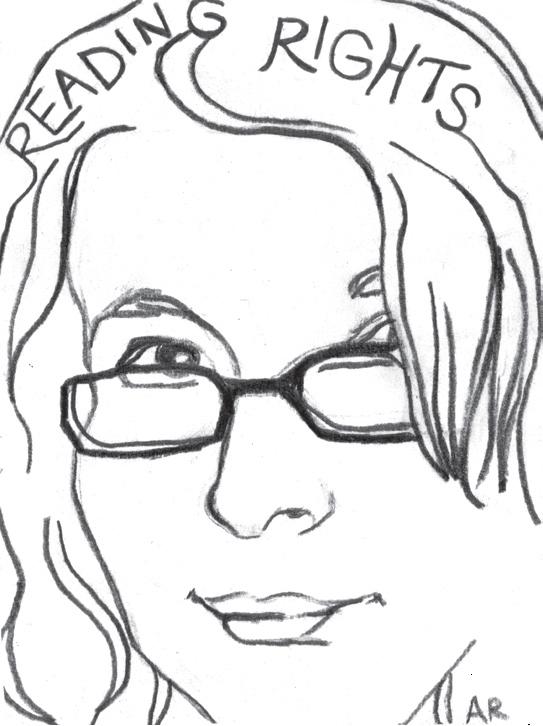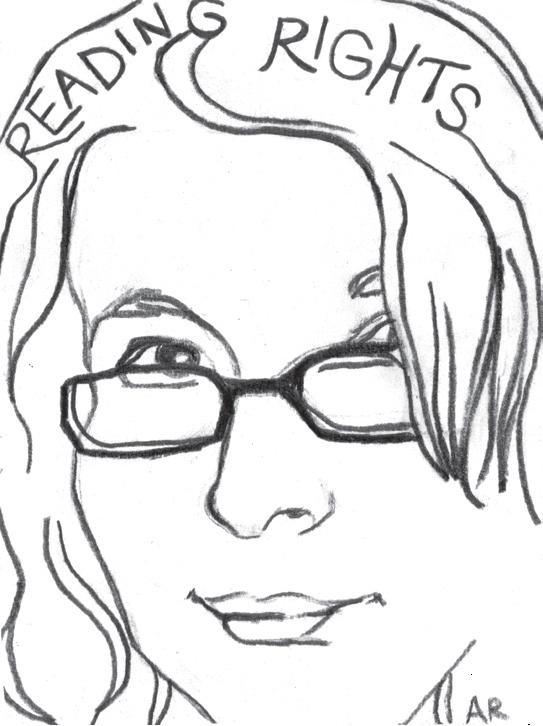
(Drawing by Annie Raccuglia)
I’ve written a book review or two in my lifetime, and the experience has often left me questioning why I had been given the right to express my opinion. Or more accurately, why I had been allowed to loosely cobble together something like a manifesto concerning my tastes. But my tastes are revealed to me as more and more problematic every week. What I like is somehow simultaneously too personal and too affected by everything around me.
We watched “Showgirls” in my class on cult films and read a number of articles by scholars who felt that they had to explain why “Showgirls” was good before they could even begin to be taken seriously. A man named I.Q. Hunter suggested that the more people disagree with him about the film, the more he has to work to try to explain it.
In this suggestion Hunter implicitly privileges his own reading. In order to counter this, he introduces the ideas of a philosopher named Richard Rorty, who suggests that we stop placing value judgments on readings and instead work on using the most useful personal framework for interpretation.
The way that Hunter analyzes this idea boils down to the often-criticized phrase “in my opinion.” Whose opinion is it if you’re writing it down and not citing it? Hopefully it’s yours, but we don’t need you to remind us of it. And we also know that Hunter comes from a fairly specific background.
He’s a scholar — white, male — writing a chapter for a book that will mostly be read by other film enthusiasts/scholars. But his suggestion that we read how we want without reference to our social or cultural upbringing is meant to divorce him from that position, to make us forget.
A “free-wheeling Rortyian” is someone who simply reacts and says something akin to “I liked this book because it spoke to me and reaffirmed my ideology.” We can’t really remove ourselves from the taste that we’ve developed based on other things we read and the ways in which we interact with other people.
Hunter both suggests that we can appreciate something in a vacuum and that an interpretation that tells us what we already think to be true is boring. My question to you is, do you see yourself as a “free-wheeling Rortyian,” able to stop judging the value of someone’s tastes and reading “based on the psychological and social factors that gave rise to [them]”?
To put it in maybe more concrete terms, would you think that a novel about men would be better or more accurately analyzed by a man in a similar socio-economic situation as the characters you’re reading about?
When analyzing films from the bottom of the low culture barrel, we concern ourselves with our position as academics, wondering how that changes how we react. But I would go so far as to say that our position as college students affects how we consume all culture.
Telling me that you liked a book you read for class tells me something about your taste, but it also tells me something about the kinds of narratives you might react to, the stories that you would like to be told — which naturally stems from both what’s inside of you and what’s outside of you.

